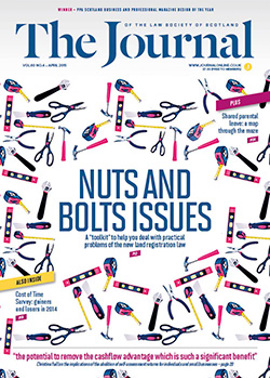Opinion: Graham Sykes

I have to disagree with Waqqas Ashraf’s well-intended but flawed comment on freedom of speech (Journal, February, 5). The simple fact is that you either have freedom of speech in a democratic society or you do not. It cannot be qualified.
Recent legislative interference and the ongoing cancer of political correctness have conspired to create an atmosphere of fear, where parents are wary of nursery rhymes involving sheep of a certain hue, VAT inspectors are reluctant to press Asian retailers for accountability, and social commentators are confused by whether the term “black” or “coloured” is the currently acceptable adjective (I confess I am too).
We live in confusing times. Billy Connolly regretted his jest about those kidnapped by Muslim extremists, while Ricky Gervais’s questionable repertoire includes sketches on cancer patients. I’m told Frankie Boyle finds it acceptable to make sport of handicapped children. People pay to hear such material, but should any personality even suggest using the dreaded “n” word, the National Guard is called out.
It seems to me that there is some misuse of the word “race”. We talk of matters being “inter-racial”, or of “racial conflict”. Surely there is only one race, the human race? The difficulties we experience in modern society do not involve any conflict about nationality (let’s not open up the UKIP debate here); the problem originates in the fundamental conflict between the liberal secular way largely followed in the west, and Mohammedanism, with many Muslims displaying an increasing reluctance to accept the western rule of law.
As a mongrel nation, Britain has a long and remarkable cultural heritage through invasion and, more recently, immigration. When the Irish, Italian, Jewish, Polish and German immigrants arrived, they integrated in a way that many Muslims seem reluctant to embrace today. That is not to say that those of the Muslim faith have not made their own contribution, but as was learned from the Irish troubles of last century, a troublesome minority can create significant community divisions which, if unresolved, can threaten both stability and security at a national level.
We must protect and cherish the right to express without fetter; to restrict or control means there cannot be true freedom of speech. The reasonable and intelligent person will recognise that to call someone a “Yid” or a “Paki” is offensive, but until the recent legislative interventions, the British view was very much: “I don’t agree with what you say but I respect your right to say it.” It is this right that was jealously guarded by a generation who sacrificed so much to prevent Fascist imposition of measures that are in danger of creeping in today. I see no need for new statutory provisions to resolve current issues: the necessary law is in place. However, while preserving accountability, it is now time to reassure those enforcing the law that they may pursue whatever course they feel necessary to protect our way of life without fear of unreasonable media or political interference.
Charlie Hebdo’s poorly drafted cartoons were not particularly appealing, but one should not devalue the right to distribute such material in our modern democratic society. The Muslim community, although distressed, should accept that in choosing to live in the west, they must respect the concept that the freedom to express is a privilege that should never be answered by violence. Waqqas Ashraf refers to the right to “protection from incendiary material”, but with respect, it is not the material that is incendiary, it is the bombs detonated by those who seek to attack the way of life that previous generations fought to protect. There is a growing awareness among many British citizens that with political correctness and misguided state restriction, this hard-won right is now in jeopardy.
I propose to leave the last comment not to the drafters, interpreters or enforcement officers of the law, but rather the so-called “reasonable man” often referred to in case reports. Stopping in a bar on the way home, I chanced on a passionate discussion among four elderly gentlemen about the current state of community relations in the UK. This was concluded by an impressive and particularly Glaswegian turn of phrase when one of the group summed up: “Look, Ah’ve got nae problem with any o’ thae Muslims comin’ o’er here to stay, so long as they behave themsels. Any o’ their pish and we’ll dae whit the Australians dae!”
If recent outrageous reports about exclusion zones for non-Muslims being established in certain parts of Glasgow and Bradford are to be believed, perhaps it is time to consider the Australian stance against radical conduct.
In this issue
- Keeping Government responsible
- Contempt, or good faith?
- Reform – 170 years on
- Employee ownership: adding trust
- The gender gap: coming clean
- Cyber risk - are you covered?
- Reading for pleasure
- Opinion: Graham Sykes
- Book reviews
- Profile
- President's column
- Land Register completion update
- People on the move
- Tools for today's titles
- Those elusive profits
- The Budget and the crystal ball
- Child of our time?
- Elephant in very many rooms
- Video: the best evidence?
- Who would be a legislator?
- Sustainability: applying the presumption
- A woman’s work…
- Scottish Solicitors Discipline Tribunal
- Living the dram
- Land information: a one-stop shop
- From the Brussels office
- Registered paralegals: what trends?
- Law reform roundup
- MHO reports – please help with timing data
- Plaque marks WW1 lawyer dead
- Selling yourself from day one
- View from the grass roots
- Keep it in the family
- Ask Ash
- When cooling-off kicks in
- Bottom line, the accountants are coming
- First day in the office






